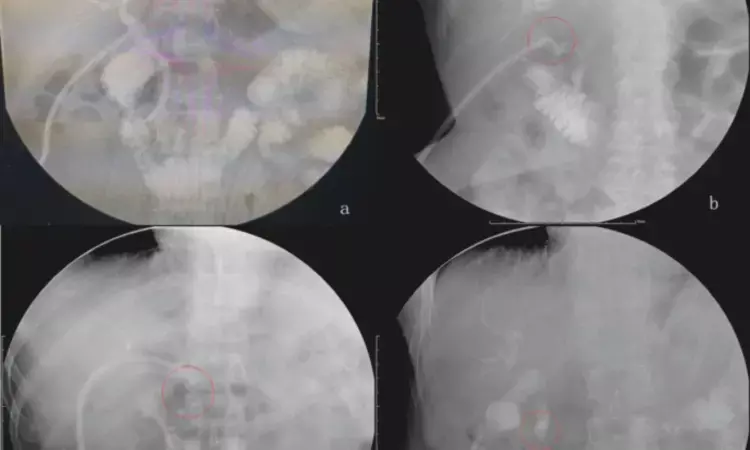- Home
- Medical news & Guidelines
- Anesthesiology
- Cardiology and CTVS
- Critical Care
- Dentistry
- Dermatology
- Diabetes and Endocrinology
- ENT
- Gastroenterology
- Medicine
- Nephrology
- Neurology
- Obstretics-Gynaecology
- Oncology
- Ophthalmology
- Orthopaedics
- Pediatrics-Neonatology
- Psychiatry
- Pulmonology
- Radiology
- Surgery
- Urology
- Laboratory Medicine
- Diet
- Nursing
- Paramedical
- Physiotherapy
- Health news
- Fact Check
- Bone Health Fact Check
- Brain Health Fact Check
- Cancer Related Fact Check
- Child Care Fact Check
- Dental and oral health fact check
- Diabetes and metabolic health fact check
- Diet and Nutrition Fact Check
- Eye and ENT Care Fact Check
- Fitness fact check
- Gut health fact check
- Heart health fact check
- Kidney health fact check
- Medical education fact check
- Men's health fact check
- Respiratory fact check
- Skin and hair care fact check
- Vaccine and Immunization fact check
- Women's health fact check
- AYUSH
- State News
- Andaman and Nicobar Islands
- Andhra Pradesh
- Arunachal Pradesh
- Assam
- Bihar
- Chandigarh
- Chattisgarh
- Dadra and Nagar Haveli
- Daman and Diu
- Delhi
- Goa
- Gujarat
- Haryana
- Himachal Pradesh
- Jammu & Kashmir
- Jharkhand
- Karnataka
- Kerala
- Ladakh
- Lakshadweep
- Madhya Pradesh
- Maharashtra
- Manipur
- Meghalaya
- Mizoram
- Nagaland
- Odisha
- Puducherry
- Punjab
- Rajasthan
- Sikkim
- Tamil Nadu
- Telangana
- Tripura
- Uttar Pradesh
- Uttrakhand
- West Bengal
- Medical Education
- Industry
T-Tube versus Choledochoscopy: Equally Effective for Post-Surgical Bile Duct Stone Detection, Study Finds

China: A recent study investigated the effectiveness of two diagnostic techniques T-tube cholangiography and choledochoscopy-in identifying residual bile duct stones following biliary surgery. Residual calculi can lead to severe complications, making accurate detection essential for patient management.
The results, published in BMC Gastroenterology, revealed no significant difference in diagnostic accuracy between the two techniques, with a p-value of 0.82, indicating comparable performance. Both methods demonstrated a high consistency in their findings, reflected by a Kappa value of 0.70, which signifies a strong agreement between the two diagnostic approaches.
The findings imply that the selection of a diagnostic method for detecting postoperative residual bile duct stones should be tailored to the individual patient's circumstances.
T-tube cholangiography and choledochoscopy are methods for identifying residual bile duct stones after biliary surgery. However, the effectiveness of routine cholangiography before T-tube removal requires further exploration. With this in mind, Yamin Zheng, Capital Medical University, Xicheng District, Beijing, China, and colleagues set out to assess the diagnostic efficacy of different techniques for detecting residual calculi following biliary procedures.
For this purpose, the researchers retrospectively analyzed the clinical data of 287 adult patients who underwent common bile duct exploration with T-tube drainage, followed by T-tube cholangiography and choledochoscopy at the Department of General Surgery, Xuanwu Hospital, Capital Medical University, from 2017 to 2022. Patients were excluded if they had bile duct tumors, incomplete medical records, were lost to follow-up, or had contraindications to T-tube or choledochoscopy. The McNemar and Kappa tests were utilized to compare the results and consistency between the two diagnostic methods. All patients underwent both cholangiography and choledochoscopy six to eight weeks after laparoscopic cholecystectomy combined with common bile duct exploration and T-tube drainage. T-tube cholangiography and choledochoscopy findings were documented, analyzed, and compared for each patient.
The study led to the following findings:
- Out of 287 patients, T-tube cholangiography identified residual stones in 38 cases. Choledochoscopy confirmed residual stones in 29 cases.
- Among the 249 patients who showed no signs of residual stones on T-tube cholangiography, 11 were later found to have retained stones via choledochoscopy.
- There was no significant difference in the results between T-tube cholangiography and choledochoscopy.
- The two methods demonstrated a high level of agreement, with a Kappa value of 0.70.
The researchers concluded that a study assessing the diagnostic value of T-tube cholangiography and choledochoscopy for detecting residual bile duct stones after biliary surgery revealed a strong agreement between the two methods, with no significant difference in their overall effectiveness.
"However, choledochoscopy identified some stones that were missed by T-tube cholangiography. Therefore, diagnostic technique selection should be customized based on the patient's specific circumstances," they wrote.
Reference:
Li, S., Wang, Z., Li, Z. et al. Diagnostic value of T-tube cholangiography and choledochoscopy in residual calculi after biliary surgery. BMC Gastroenterol 24, 383 (2024). https://doi.org/10.1186/s12876-024-03474-7
Dr Kamal Kant Kohli-MBBS, DTCD- a chest specialist with more than 30 years of practice and a flair for writing clinical articles, Dr Kamal Kant Kohli joined Medical Dialogues as a Chief Editor of Medical News. Besides writing articles, as an editor, he proofreads and verifies all the medical content published on Medical Dialogues including those coming from journals, studies,medical conferences,guidelines etc. Email: drkohli@medicaldialogues.in. Contact no. 011-43720751


